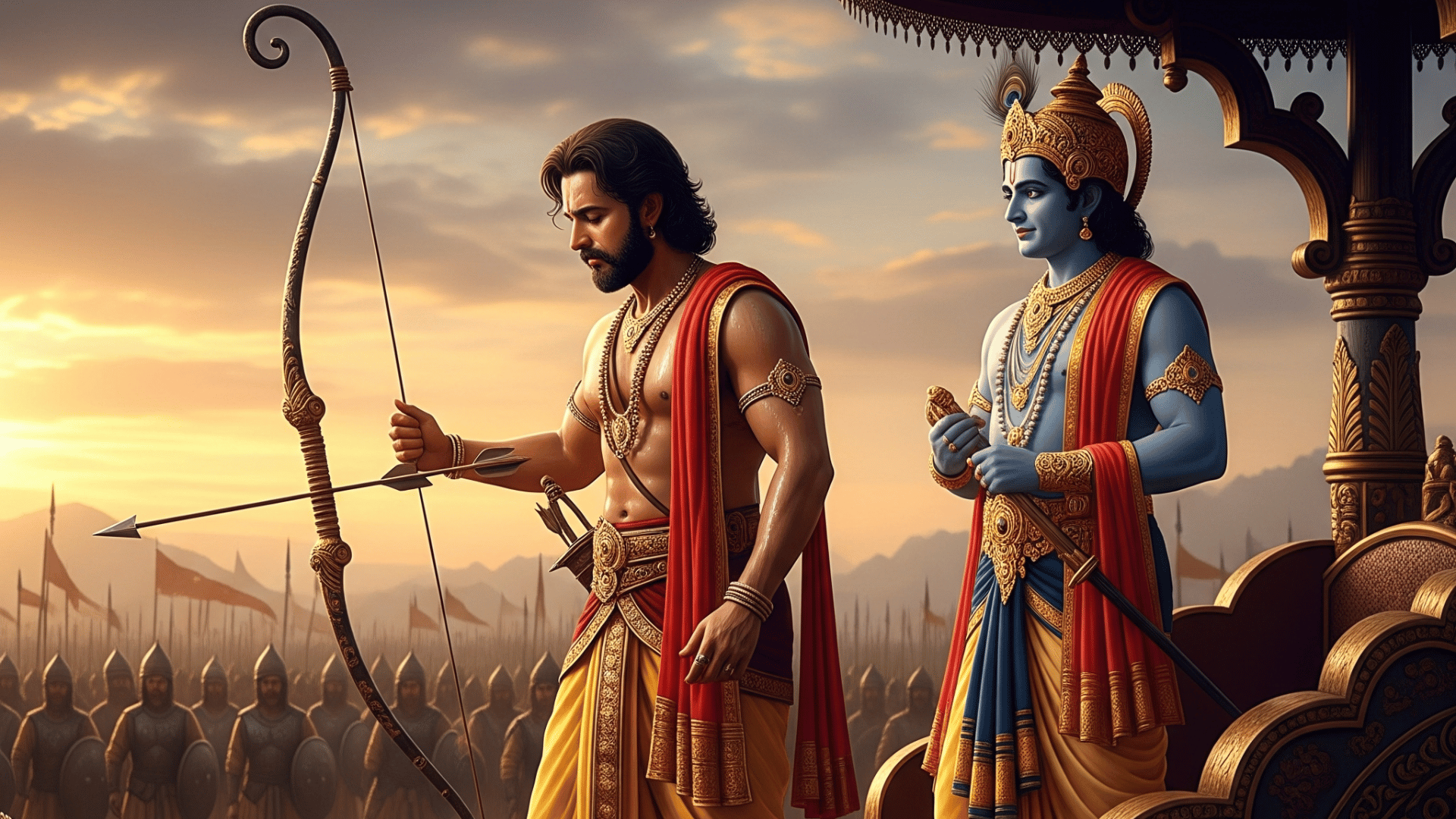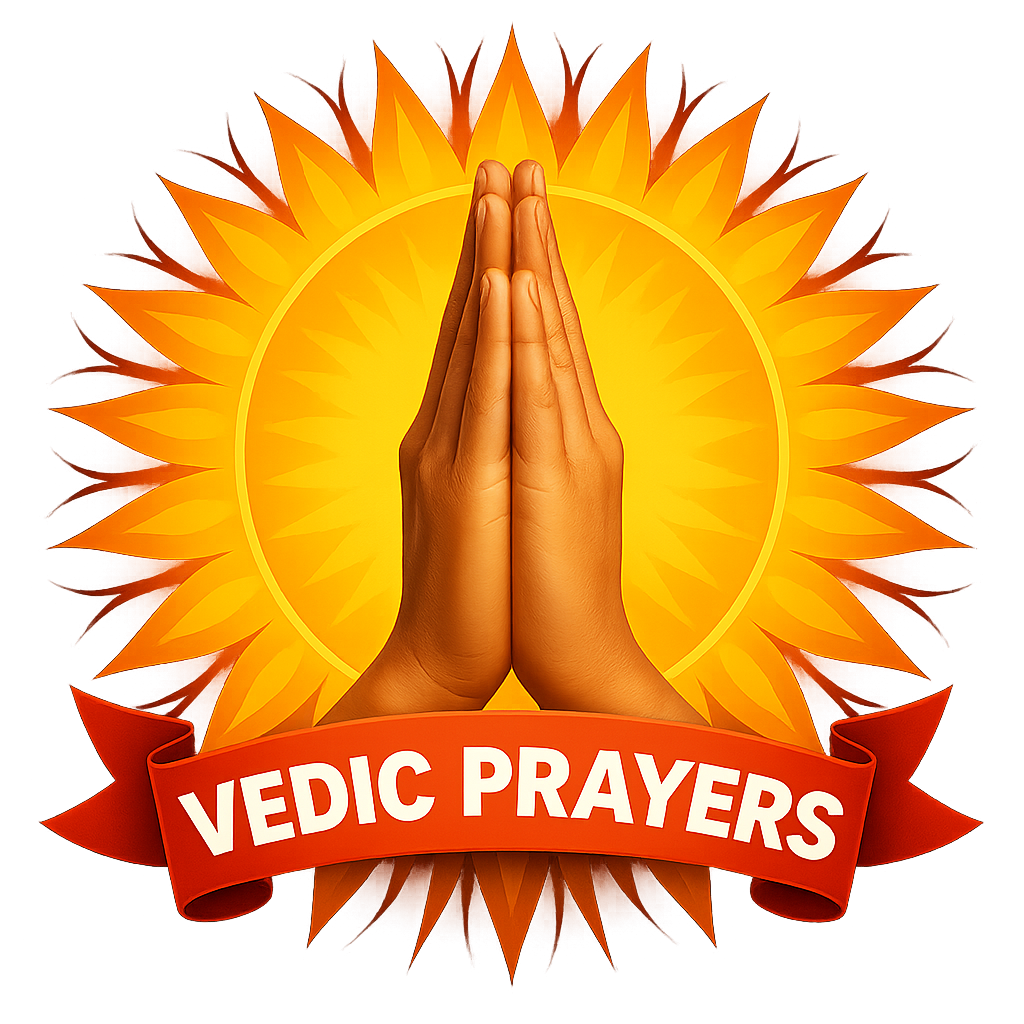
Chapter 1 – Arjuna’s Despondency
Verse 30
Gaandeevam’, stranste, hastaat’, tvak’, ch, ev, paridahyate,
Na, ch, shaknomi, avasthaatum’, bhramti, iv, ch, me, man: ||30||
(Arjuna says:)
“My Gandiva bow is slipping from my hand, my skin is burning, I am unable to stand, and my mind is reeling with confusion.”
Deep Interpretation / Detailed Explanation:
In this verse, Arjuna expresses his physical and mental breakdown. Standing on the battlefield, as he sees his close relatives, revered teachers, and dear friends on the opposing side, his courage begins to falter.
- “Gandīvam sraṁsate hastāt” – Arjuna’s mighty bow, Gandiva, is slipping from his hand. This symbolizes the collapse of his confidence and the fading of his warrior spirit.
- “Tvak chaiva paridahyate” – His skin is burning. This is a physical manifestation of intense psychological stress.
- “Na cha śaknomy avasthātum” – He is unable to stand firm. His body is failing under the emotional weight.
- “Bhramatīva cha me manaḥ” – His mind is spinning, overwhelmed with emotional confusion and inner conflict.
This verse reveals that Arjuna is on the verge of withdrawing from the battlefield. His resolve to fight is crumbling. This is not just a moment of fear, but a deep spiritual and emotional crisis faced by a sensitive soul caught in a moral dilemma.
Key Message:
- Arjuna's body and mind are both rebelling against the very idea of war.
- This verse marks the peak of Arjuna’s sorrow and inner collapse.
- It sets the stage for Lord Krishna to begin the teachings of the Bhagavad Gita.
- Arjuna is now ready to surrender to Krishna, not just as a friend, but as a disciple seeking guidance.
















